Toggle navigation
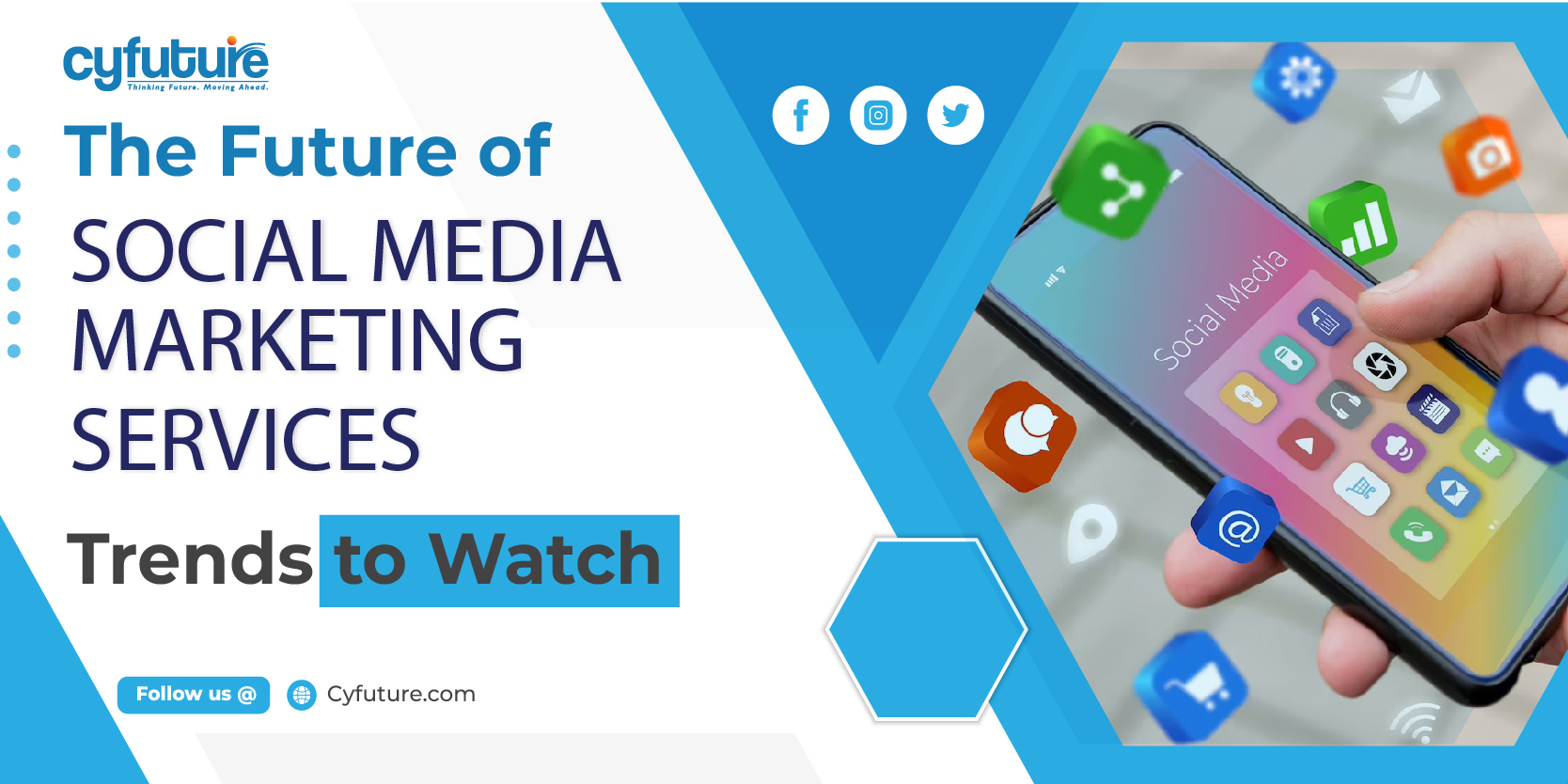
“Social media is not a media. The key is to listen, engage, and build relationships.” – David Alston, Marketing Expert.
Social media marketing services have become an essential part of digital marketing, providing a cost-effective and efficient way for businesses to reach their target audience. Social media platforms, such as Facebook, Instagram, Twitter, LinkedIn, and TikTok, have become an integral part of people’s daily lives, making social media marketing services an essential tool for businesses to connect with their target audience.
The concept of social media marketing services dates back to the early 2000s when social media platforms started to gain popularity. The first social media platform, Six Degrees, was launched in 1997, but it was not until the launch of Facebook in 2004 that social media began to shape the marketing industry. Since then, the social media landscape has evolved rapidly, with the introduction of new platforms and the increasing adoption of social media by businesses.
According to the Global Digital Report 2021, there are 4.66 billion active social media users worldwide, representing around 59% of the global population. This staggering number presents a significant opportunity for businesses to reach and engage with their target audience through social media marketing services.
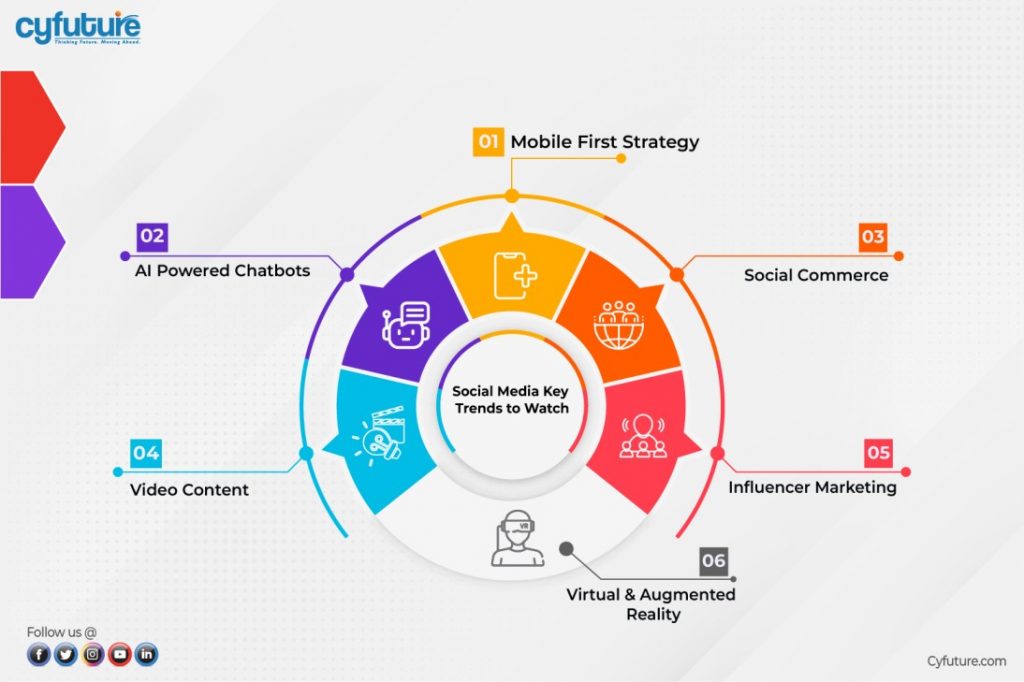
– Mobile First Strategy
– Social Commerce
– Video Content
– Influencer Marketing
– Virtual & Augmented Reality>
One of the key trends in social media marketing services is online reputation management. In today’s digital age, businesses are increasingly being judged by their online reputation, with customers relying on online reviews and feedback to make purchasing decisions. According to BrightLocal’s 2020 Local Consumer Review Survey, 87% of consumers read online reviews for local businesses, and 40% of consumers only consider reviews written within the past two weeks.
In addition to online reputation management, other trends in social media marketing services include the use of video content, influencer marketing, social commerce, and the increasing importance of social media advertising. According to Statista, social media advertising spending is expected to reach $118.4 billion in 2021, up from $84.5 billion in 2019.
In conclusion, keeping up with trends in social media marketing services is crucial for businesses to stay ahead of the competition and effectively reach their target audience. Online reputation management services are becoming increasingly important, as customers rely on online reviews and feedback to make purchasing decisions. Other trends in social media marketing services, such as video content, influencer marketing, social commerce, and social media advertising, present significant opportunities for businesses to engage with their target audience and drive sales.
For more details on the future of social media marketing services and how your business can benefit, consult with a reputable digital marketing agency or stay up-to-date with industry news and developments.
As mobile usage continues to grow, businesses must adapt their marketing strategies to reach their audience effectively. A mobile-first strategy is a design approach that prioritizes mobile devices when creating marketing content and designing websites. With over 3.8 billion smartphone users worldwide, a mobile-first strategy has become essential for businesses to succeed in the digital space.
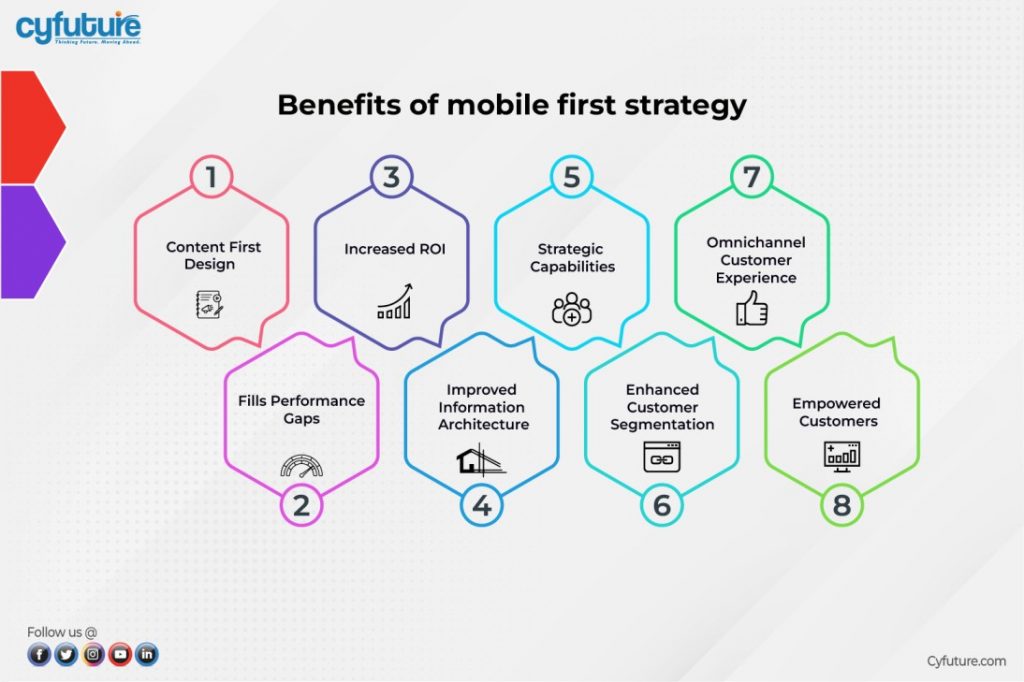
A mobile-first strategy involves designing content and websites with the mobile experience in mind. This approach prioritizes mobile users and aims to deliver a seamless experience across all devices, including smartphones, tablets, and desktops. This strategy requires businesses to focus on simplicity, ease of use, and faster loading times to optimize the user experience.
With more than half of all internet traffic coming from mobile devices, a mobile-first approach is critical for social media marketing services. According to Statista, over 90% of social media users access their accounts through mobile devices. Therefore, businesses must ensure their social media marketing campaigns are optimized for mobile devices to reach and engage their target audience effectively.
In addition to reaching more users, mobile-first design can also improve a business’s online reputation management. Websites and content that are not optimized for mobile devices can result in poor user experiences, leading to negative reviews and feedback. On the other hand, a positive mobile experience can lead to positive reviews and feedback, improving a business’s online reputation.
Several businesses have successfully implemented a mobile-first strategy in their social media marketing campaigns. One example is Taco Bell’s “Taco Emoji Engine” campaign, which allowed users to request a custom taco emoji on Twitter by tweeting a taco emoji and any other emoji. The campaign generated over 700,000 mentions and 1.2 billion impressions, with over 100,000 custom taco emojis created. The campaign was optimized for mobile devices, allowing users to participate easily from their smartphones.
Another example is Airbnb’s “Experiences” campaign, which aimed to promote the brand’s new offering of curated travel experiences. The campaign used Instagram’s “Stories” feature to showcase the experiences, with mobile-first design elements such as vertical videos and swipeable galleries. The campaign generated over 12 million views and helped to establish Airbnb’s position as a leader in travel experiences.
As technology continues to advance, AI-powered chatbots have become a popular tool for businesses to improve their customer service and social media marketing services. AI-powered chatbots use machine learning and natural language processing to communicate with users, providing quick and personalized responses to their queries.
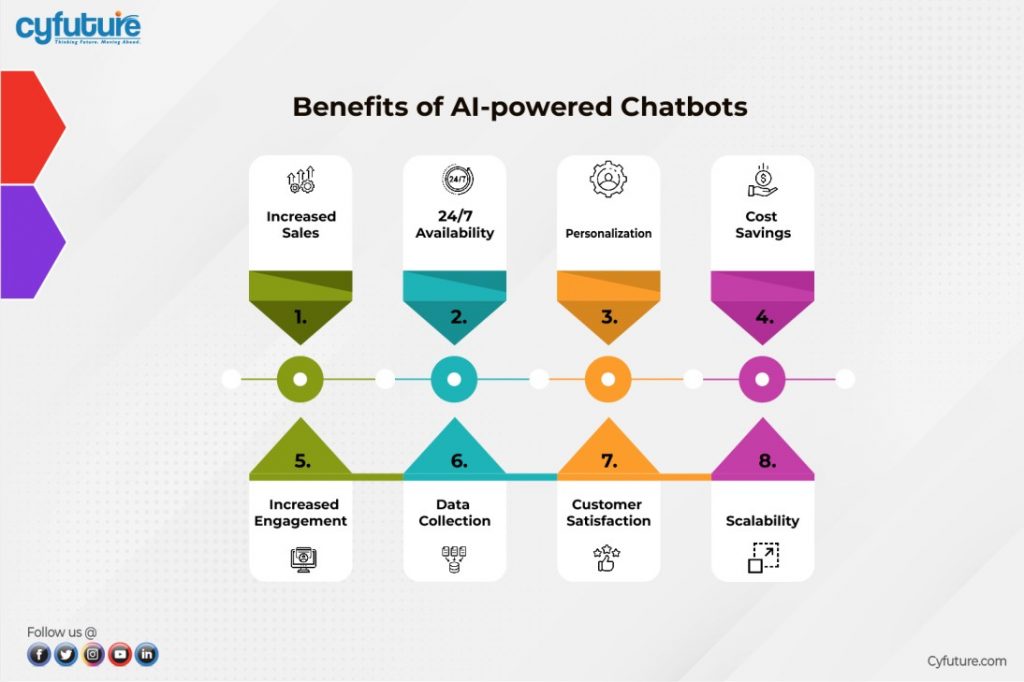
AI-powered chatbots are computer programs designed to simulate human conversation. These chatbots use machine learning and natural language processing to understand and interpret user queries and provide personalized responses. AI-powered chatbots can be integrated into social media platforms, websites, and messaging apps to provide instant customer support and improve user engagement.
AI-powered chatbots offer several benefits for businesses looking to improve their social media marketing services. Firstly, chatbots provide instant responses to user queries, improving response time and customer satisfaction. According to a study by Salesforce, 64% of consumers and 80% of business buyers expect companies to respond to their inquiries in real time.
Chatbots also provide businesses with valuable data and insights into user behavior, preferences, and pain points. This information can be used to improve marketing campaigns, product development, and customer service. Chatbots can also help businesses save time and money by automating routine tasks such as order processing and appointment scheduling.
Several businesses have successfully implemented AI-powered chatbots in their social media marketing campaigns. One example is the chatbot used by H&M on their Kik messenger account. The chatbot engaged users in a quiz game and provided them with personalized outfit recommendations based on their answers. The campaign resulted in a 22% increase in online sales and a 60% increase in user engagement.
Another example is the chatbot used by Sephora on Facebook Messenger. The chatbot provided users with personalized makeup recommendations based on their skin tone and preferences. The chatbot also allowed users to book in-store appointments and receive makeup tutorials. The chatbot campaign resulted in an 11% increase in bookings and a 3.5 times higher click-through rate compared to traditional Facebook ads.
Interesting Blog: Importance of Social Media and Instagram for Ecommerce Business Marketing
Social commerce is a relatively new concept that combines social media marketing services with e-commerce. Social commerce refers to the use of social media platforms to promote and sell products or services directly to consumers. This approach aims to create a seamless shopping experience for consumers and to improve the effectiveness of social media marketing campaigns.
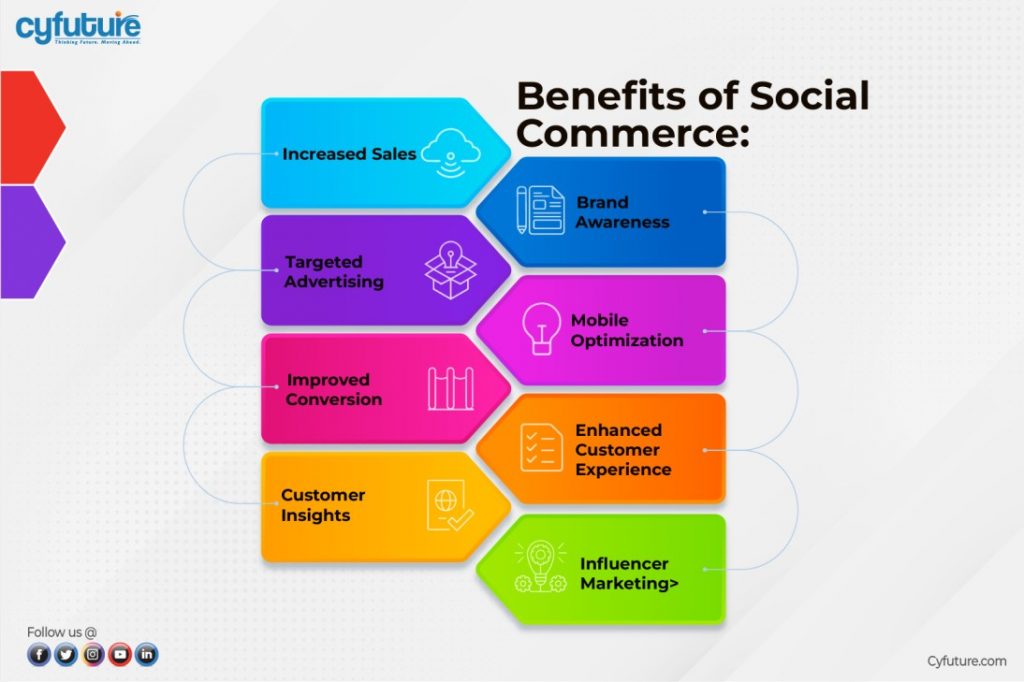
Social commerce offers several benefits for businesses and consumers. For businesses, social commerce provides a new channel to reach potential customers, improve brand awareness, and increase sales. Social media platforms such as Instagram and Facebook offer businesses the ability to promote their products to targeted audiences, improving the effectiveness of their marketing campaigns.
For consumers, social commerce provides a more personalized and convenient shopping experience. Social media platforms allow users to discover new products and services, read reviews, and purchase items directly without having to leave the platform. Social commerce also creates a sense of community among users, encouraging them to share their purchases and experiences with others.
Several businesses have successfully implemented social commerce into their marketing strategies. One example is the Instagram account of the clothing brand Fashion Nova. Fashion Nova has over 20 million followers on Instagram and uses the platform to promote their products and encourage user-generated content. Fashion Nova’s social commerce strategy has resulted in significant sales growth, with the company reporting $800 million in revenue in 2018.
Another example is the Facebook shop feature used by the online retailer Shopify. The Facebook shop feature allows businesses to create a storefront on their Facebook page, allowing users to browse and purchase products directly from the platform. Shopify has reported that businesses using the Facebook shop feature have seen a 2X increase in sales compared to traditional e-commerce channels.
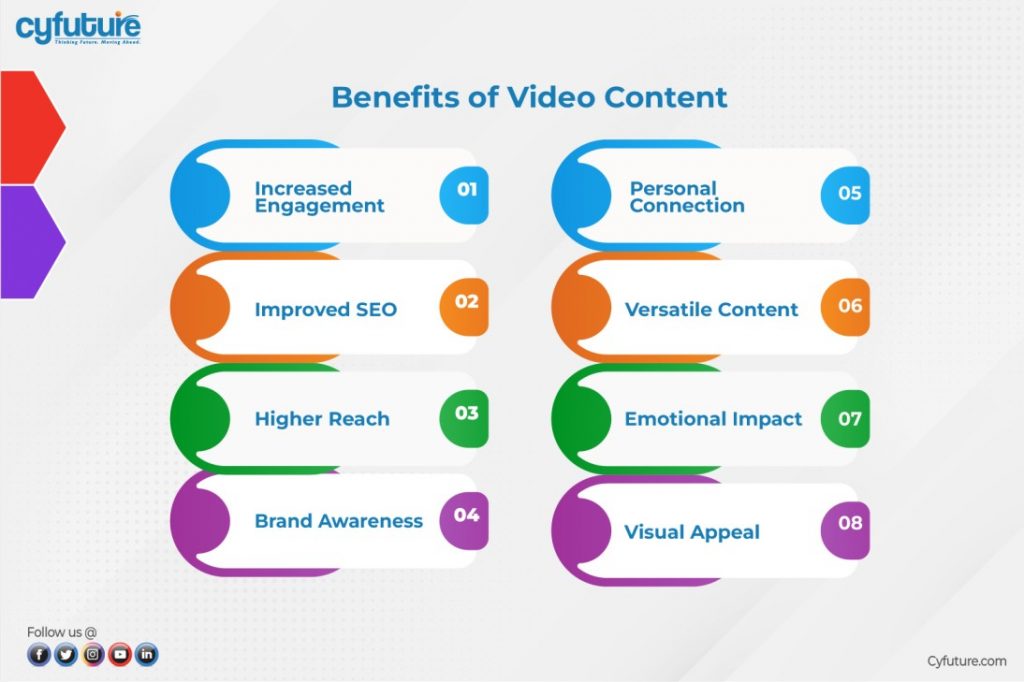
Video content has become a vital component of social media marketing services. With the rise of platforms such as YouTube, Instagram, TikTok, and Facebook, video content has become an essential part of any successful social media marketing campaign.
Video content has become an increasingly popular medium for social media marketing services. According to HubSpot, 54% of consumers want to see more video content from businesses they support. Additionally, social media posts with videos receive 48% more views than those without. Videos have been found to be more engaging and can communicate a message more effectively than text or images alone.
There are several types of video content that are popular in social media marketing services, including:
Several businesses have successfully used video content in their social media marketing campaigns. One example is the Dollar Shave Club, which used a humorous video to promote its subscription service. The video went viral, receiving over 26 million views, and resulted in a significant increase in subscriptions.
Another example is Blendtec’s “Will It Blend?” video series, which demonstrated the power of their blenders by blending various objects, including iPhones and golf balls. The videos went viral, resulting in a 700% increase in sales and a significant increase in brand awareness.
Also Check: An Insight: Online Reputation Management Services
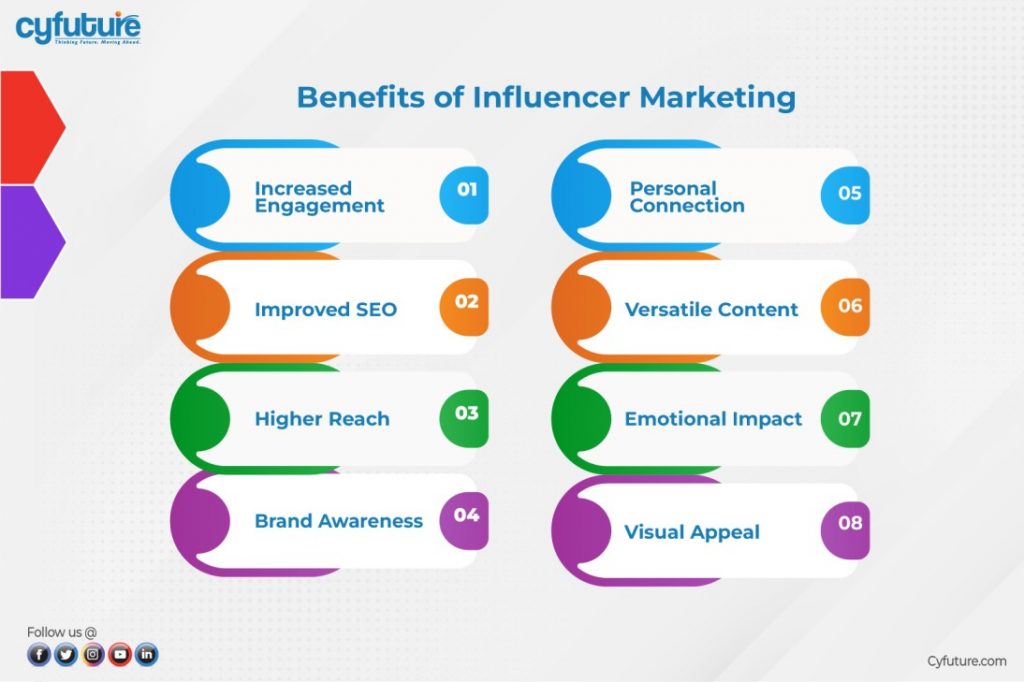
Influencer marketing has become a popular strategy for businesses to promote their products or services through social media marketing services. Influencer marketing involves collaborating with individuals who have a significant following on social media to promote a brand’s products or services to their audience.
Influencer marketing involves partnering with individuals who have a significant following on social media platforms such as Instagram, YouTube, and TikTok. These individuals, also known as influencers, have built a reputation and a loyal following based on their content, expertise, or lifestyle. Businesses collaborate with influencers to promote their products or services to their audience, in the hopes of increasing brand awareness, engagement, and sales.
Influencer marketing has become an essential component of social media marketing services. According to a study by Influencer Marketing Hub, the influencer marketing industry is expected to be worth $13.8 billion in 2021. Furthermore, 89% of marketers find influencer marketing to be effective, with 63% planning to increase their influencer marketing budgets in the next year.
Several businesses have successfully used influencer marketing in their social media marketing campaigns. One example is Daniel Wellington, a watch brand that collaborated with several influencers to promote their watches. The campaign resulted in a significant increase in brand awareness and sales, with the company selling over one million watches in 2016.
Another example is Gymshark, a fitness apparel brand that collaborated with fitness influencers to promote their products. The campaign resulted in a significant increase in brand awareness and engagement, with the company achieving $128 million in sales in 2019.
As technology advances, virtual and augmented reality (VR and AR) have become more accessible and widely used in various industries. In the field of social media marketing services, VR and AR can provide immersive experiences for users, which can result in increased engagement and conversion rates.
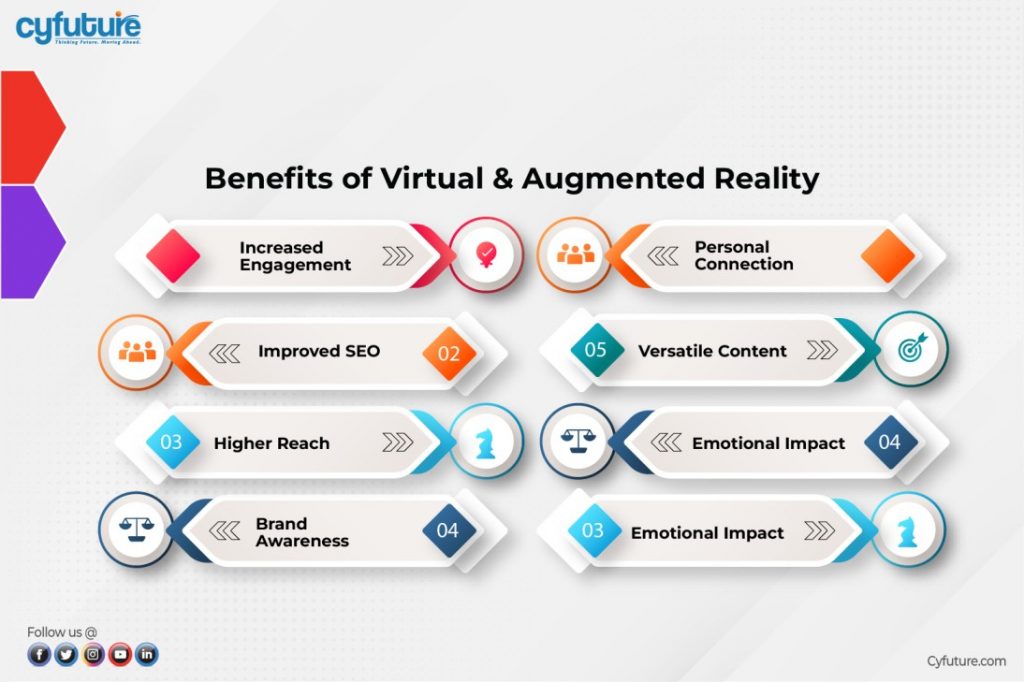
Virtual reality involves creating a completely digital environment that users can interact with. Augmented reality, on the other hand, overlays digital content onto the real world. This technology allows users to experience products and services in a new and interactive way.
One of the benefits of using VR and AR in social media marketing services is the ability to provide a more immersive and engaging experience for users. This can increase the time spent on a platform and the likelihood of a conversion. VR and AR can also help businesses showcase their products and services in a unique and innovative way, giving them a competitive edge.
An example of successful VR and AR implementation in social media marketing services is IKEA’s Place app. The app uses AR technology to allow users to visualize how IKEA furniture would look in their homes before making a purchase. This has resulted in increased customer satisfaction and a boost in sales for the company.
Another example is the use of VR by travel companies. VR technology allows potential customers to experience a destination before booking a trip, resulting in a higher likelihood of conversion.
Read More: Social Media Marketing: How to Grow Your Business Using YouTube Ad Campaigns
In this blog post, we have discussed several emerging trends in social media marketing services. These include a mobile-first strategy, AI-powered chatbots, social commerce, video content, influencer marketing, and virtual and augmented reality.
A mobile-first strategy is essential for businesses to reach their audience effectively. AI-powered chatbots can improve customer engagement and satisfaction. Social commerce provides a seamless way for customers to make purchases on social media platforms. Video content is becoming increasingly popular, and businesses can use it to engage with their audience effectively. Influencer marketing allows businesses to leverage the reach and credibility of influencers to promote their products and services. Virtual and augmented reality technology can provide an immersive experience for users and boost engagement.
Keeping up with these emerging trends in social media marketing services is crucial for businesses to stay competitive and reach their target audience effectively. By leveraging these trends, businesses can create engaging and innovative marketing campaigns that can increase their brand awareness, customer engagement, and sales.
In conclusion, the future of social media marketing services is exciting and filled with new opportunities for businesses to connect with their audience effectively. By staying up to date with the latest trends and implementing them in their marketing strategies, businesses can position themselves for success in a constantly evolving digital landscape.
Leave a Reply